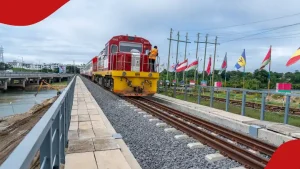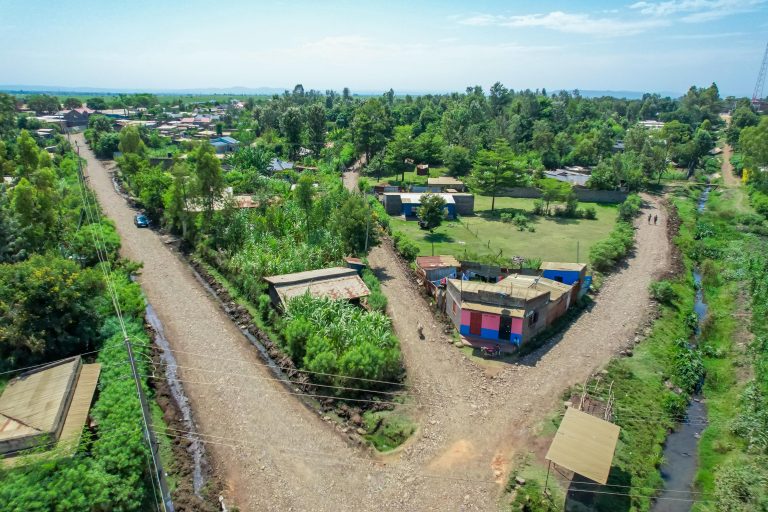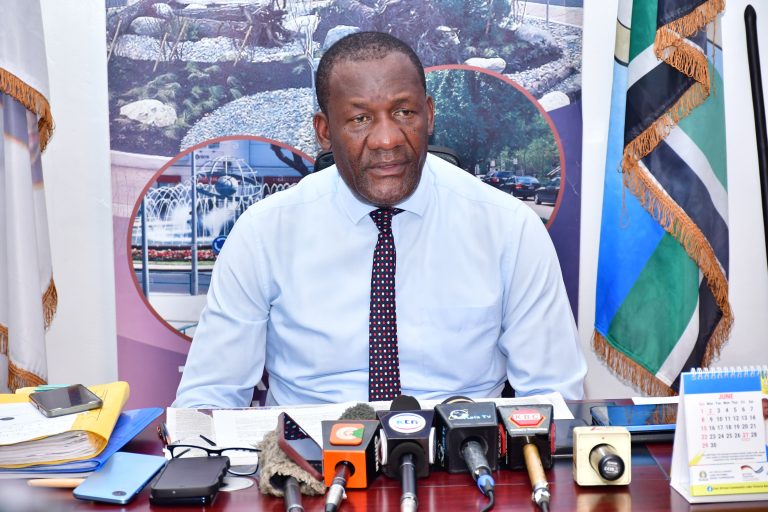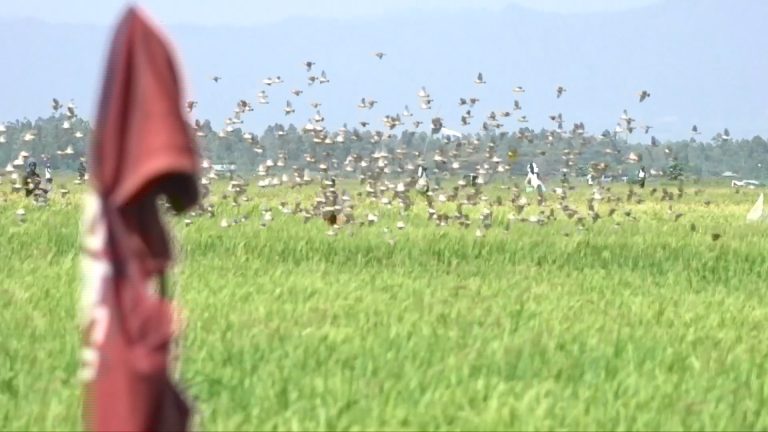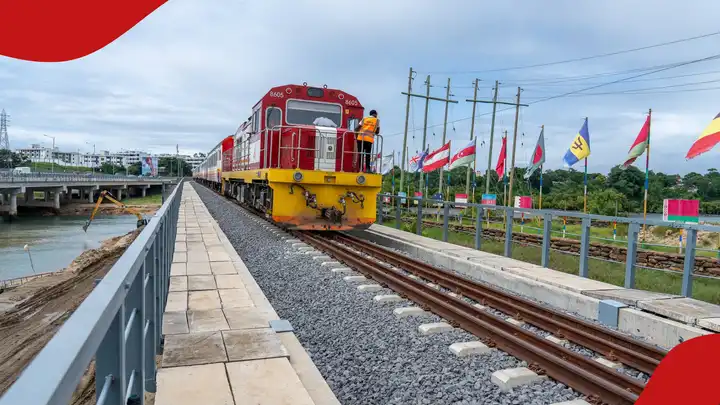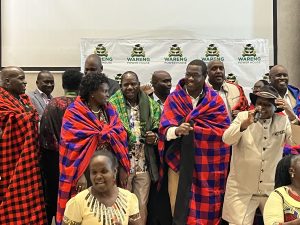A few years ago, Richard Kimeu’s four-acre farm was bare, and farming had become nearly impossible due to prolonged droughts and chronic water shortage.
Today, Kimeu’s farm, like other farms within Kaiti subcounty in Ilima ward, Makueni county, is blossoming with crops such as sukuma wiki, spinach and onions.
“Water was our biggest problem. Today, I use water from the Wautu Kyangaati sand dam. With it, I am able to grow vegetables throughout the year, which are for domestic consumption and sell some to the local market. Life is starting to feel normal again,” he says.
Kimeu is among about 300 farmers who have benefited from the Wautu Kyangaati sand dam water project.
The Sh16 million project has given residents hope and are now planting and harvesting produce, selling surplus to the local market.
The project, which is nestled in Kaiti subcounty in Ilima ward, has benefited 8,773 people and was funded by Financing Locally Led Climate Action (Flloca).
It seeks to strengthen local resilience to the impacts of climate change, natural hazards and other shocks by building local capacity to plan, budget, implement and monitor resilience investments.
This is in a way that promotes collaborative partnerships between communities and national and county governments.
The programme focuses on capitalising on the National and County Climate Change Funds and building county-level capacity for planning, budgeting, reporting and implementing local climate actions in partnership with communities.
It is being implemented by the national government in partnership with county governments.
In Ilima ward, the project consists of the construction of one sand dam, reinforced concrete with a 100 cubic metre intake sump tank and a solar system for pumping the water.
A 100 cubic metre masonry reservoir water tank was also built at the Kwa Chief area.
It also involved the construction of a communal water point at Kwa Chief and the installation of a gravity line with two communal water points.
Some 5,000 assorted high-value tree seedlings (avocado and citrus) were distributed together with the planting of 400 assorted riparian tree species.
Kimeu said before, he would get water from as far as a kilometre away, something that almost made him give up farming.
But with consistent access to water, Kimeu and other farmers have returned to their farms with renewed determination.
He said the Floca-funded initiative has not only improved food security but has also restored the dignity and livelihoods of farmers who had lost hope.
Diana Mutua is another beneficiary. “This project has helped women become independent by giving them an alternative revenue stream,” she said.
The project has also helped John Mativo grow bananas, avocados and other crops.
Today, Mativo’s farm is among those that have integrated agroforestry.
Ilima Ward Climate Change Planning Committee Chairman Kennedy Wambua said the project was initiated after consultations in early 2020.
“This area was found to be the most vulnerable during our engagement with the community,” he said, adding that climate risks and patterns were analysed.
He said the challenges that the area faces include drought and flash floods.
Wambua said the project has transformed the community and they envision that in the next 10 years, the county will be a breadbasket.
“We have seen benefits of the project as one farmer has already harvested 3.8 tonnes of onions,” he said.
Wambua said the transformative project was handed to the contractor on November 27 last year and they started work in March this year.
Flloca social safeguards specialist Dan Adino praised the project, saying it has impacted livelihoods.
He said county systems are being used to channel the funds.
“It means even these programmes are already budgeted for within the county budget, because it is money that is coming from the national government as a condition of grants,” Adino said.
He urged devolved units to utilise the resources to not only address the impacts of climate change but also enhance livelihoods.
Assistant director of climate change Jackline Kamusa said the community identified the project through a participatory climate risk assessment.
She said the project targeted 1,200 community members.
Kamusa said the sand dam project has enhanced the ecosystem and improved livelihoods.
She said Fllocca provided Sh142.7 million, while the county contributed a matching grant of Sh54.5 million.
“Together, we have implemented 13 projects under the Fllocca project,” Kamusa said.
The county climate change planning committees were formed in 2020 and have so far implemented a number of projects and proposals.
In 2023, a climate risk assessment was done with the community, where they identified and developed a ward climate action plan where vulnerable areas were prioritised.
The county has also put in place regulations as part of a wider plan to adapt to impact of climate change.
She said two per cent of the county budget is allocated towards climate change funds.
To ensure sustainability, Kamusa said they have in place sustainability committees.
“We have set a budget to train the project sustainability committee on how they are going to operate this project and how they are going to run it,” she said.
Civil Society organization focal point for Fllocca in Makueni county Felix Muendo said county governments have been very intentional in engaging communities.
He said CSOs have played a key role in monitoring and overseeing the projects funded under Fllocca.
Muendo urged counties to put more resources into climate actions and climate resilience in their budgets.
by GILBERT KOECH

